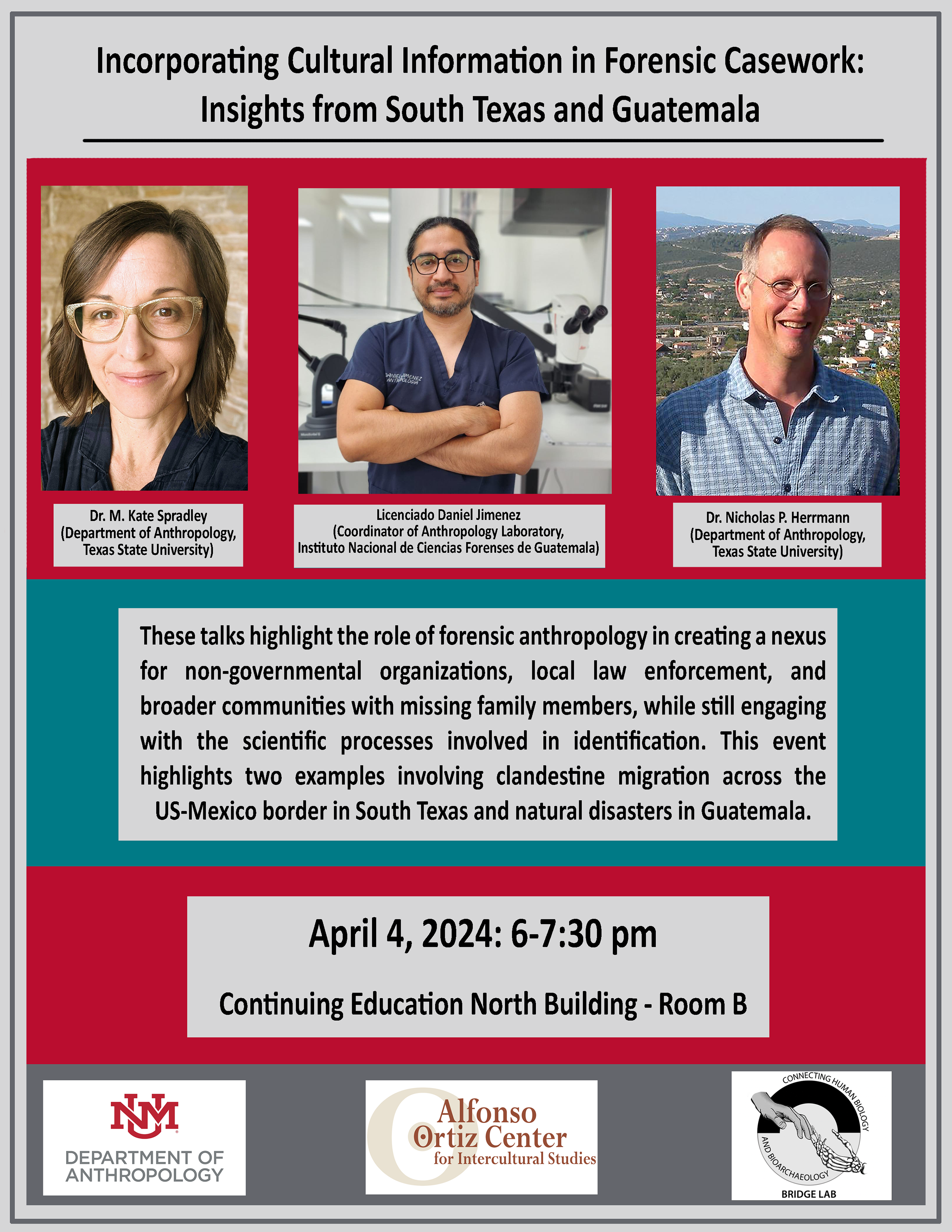Incorporating Cultural Information in Forensic Casework
--Event--

Start Date: Apr 04, 2024 - 06:00pm
End Date: Apr 04, 2024 - 07:30pm
Location: Continuing Education North Building - Room B
Incorporating Cultural Information in Forensic Casework: Insights from South Texas and Guatemala
Speakers:
Dr. M. Kate Spradley (Department of Anthropology, Texas State University), Licenciado Daniel Jimenez (Coordinator of Anthropology Laboratory, Instituto Nacional de Ciencias Forenses de Guatemala), Dr. Nicholas P Herrmann (Department of Anthropology, Texas State University).
Description:
Forensic anthropologists are often at the nucleus of missing persons investigations. When unknown human remains are found, the forensic anthropologist is responsible for estimating demographic variables that can help contribute to investigations into their identity. These demographic variables comprise the biological profile, which is compared to missing persons reports, creating a short list of individuals from which to compare information. When a match is made, remains can be returned to family members or local communities. In instances of natural disasters and international migration, resolution to missing persons/unknown remains cases can be difficult and require a different strategy. In natural disasters, entire villages or families may be missing, and remains can become commingled because of the disaster. In migration contexts, socioeconomic and cultural issues can influence who migrates, migration routes, recovery, and affect how stakeholders engage with physical bodies and the forensic systems in various localities. In these contexts, challenges may include international repatriation of the physical body. The purpose of this proposal is to highlight the various ways forensic anthropologists can create a nexus for non-governmental organizations, local law enforcement, and broader communities with missing family members, while still engaging with the scientific processes involved in identification. We use two contexts as case studies. The first examines clandestine migration at the US-Mexico border with special attention to the recovery and identification of migrants in South Texas. The second example presents the role of forensic anthropology in Guatemala during the eruption of the Volcan de Fuego in 2018.

